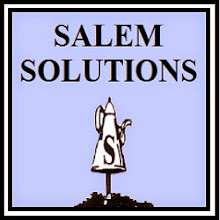Five Trends Job Hunters
Should Brush Up On
Should Brush Up On
By
Andrew Seale
As the
digital environment shapes and reshapes the job search sphere, prospective
candidates will have to keep pace – whether it be digging around for a little
behind the scenes info on a company or brushing up on your face-to-face
interview skills. In an effort to hash
out the new norm, we took a look at five trends affecting the job market in
2016 and beyond.
Job seekers will do more research
A recent poll by
Glassdoor, a platform for employees to anonymously review companies and post
salaries, found that more than 77 per cent of job hunters are reading reviews
and ratings about a company or job they’re applying for.
“Companies
that are not digital-friendly are losing out because there are candidates that
no longer have a traditional computer or laptop, they do everything now by
mobile device whether that’s a tablet or phone,” says Gena Griffin, with a
global recruitment firm.
On the job hunter side, that digital dynamic also means there are more ways for someone looking for a job at a particular company to engage that business through social media and keep on the hiring manager’s radar.
“Companies
have created capture tools – messages or alerts – that can let potential
candidate know when a new role becomes available,” says Griffin.
Reputations matter more
“When it
comes to social media, don’t kid yourself, the firms are checking and why
wouldn’t they,” says Sharon Irwin-Foulon, executive director of career
management and corporate recruiting at Ivey Business School at Western
University.
She likens
it to a judgment check. Recruiters and hiring managers are increasingly looking
to elements like social media to get an idea of candidates.
“They ask
‘what has this person put out to the world,’ ” she says pointing out that it’s
especially important in client-facing industries. “They just want to feel that
the candidate understands they have a reputation to manage.”
But what if
you don’t have a social media profile? That could raise a red flag says
Griffin.
“You may be
overlooked purely on the basis that one of their automatic processes may bypass
you completely for not having something like a LinkedIn profile,” she says.
While 68 per
cent of those polled by Glassdoor consider salary and compensation among their
top considerations, perks and benefits weren’t far behind with 57 per cent
putting them near the top of their list.
The past few
years have seen businesses get creative with their workplace culture in an
attempt to woo top talent. Netflix for instance, added unlimited employee
maternity and paternity leave for the first year after a child’s birth or
adoption and Airbnb now gives employees an annual $2,000 travel bonus.
But not all
perks are well thought out.
“We haven’t
seen a cookie-cutter approach,” says Griffin. “The companies that actually ask
and listen to their employees about what the things are that matter most to
them, those are the ones that get it right.”
For job
hunters it’s worth poking around on company websites and platforms like
Glassdoor to get an idea of what that internal culture is like. But if it
sounds too good to be true, it might be.
“Companies
are investing a lot more money owning their messages, there’s a real interest
in employment branding with more time and money being put into it,” says
Irwin-Foulon. “But they’re (also) doing a better job about saying ‘this is
what’s fun about our company but this is what’s really tough about it.’ ”
Brush up on your on-screen looks but forget faking it ‘til you make it.
Perhaps the
biggest change Griffin has seen to the interview process over the last year is
the use of video.
“It’s a
quickly emerging trend,” says the recruiter. “Many companies are now embracing
and conducting preliminary interviews via video conferencing.”
Part of that
has to do with the convenience factor but it also lets employers and candidates
alike get more of an understanding of the type of person they’re working with.
But it’s not
replacing the in-person part. In fact, Irwin-Foulon has noticed businesses are
investing more money and time on face-to-face.
“In
recruiting, we give exposure points, so the more exposure you get to someone
the more they let their guard down,” she says. “It’s not likability, in the 90s
that was a big thing, being likeable, now it’s that, in time, people’s
authentic self show – (it’s especially important) for long-term hires.”
Out with the old.
“Cover
letters may have seen their day,” says Griffin. Not outright, she explains, but in their
current form of being affixed to the front page or sent as an attachment in an
email.
“The only
(real) place for a cover letter if you’re approaching a company cold,” she
says. “It explains why you’re interested in that company but anything beyond
that becomes superfluous.”
Irwin agrees
in a sense, saying the emphasis is no longer just on having a stellar resume
and well-written cover letter that shows you can communicate without using
emojis and LOLs.
“Your resume
and cover letter needs to speak to your credo, your truths, whatever your
message is about your reputation but all your behaviors are being held up
against that or with that,” she says.
And finally,
says Griffin, businesses have changed their attitudes about how long you stick
with a company to match the ebb and flow nature of the current workforce.
“Five or six
years ago, if somebody didn’t have a company on their resume where they had
been for four or five years that maybe was a bit of a yellow flag,” she says.
“Now we’re seeing a tolerance for a two year window – that’s the new definition
of being committed to something and I think that’s where we’re at.”

